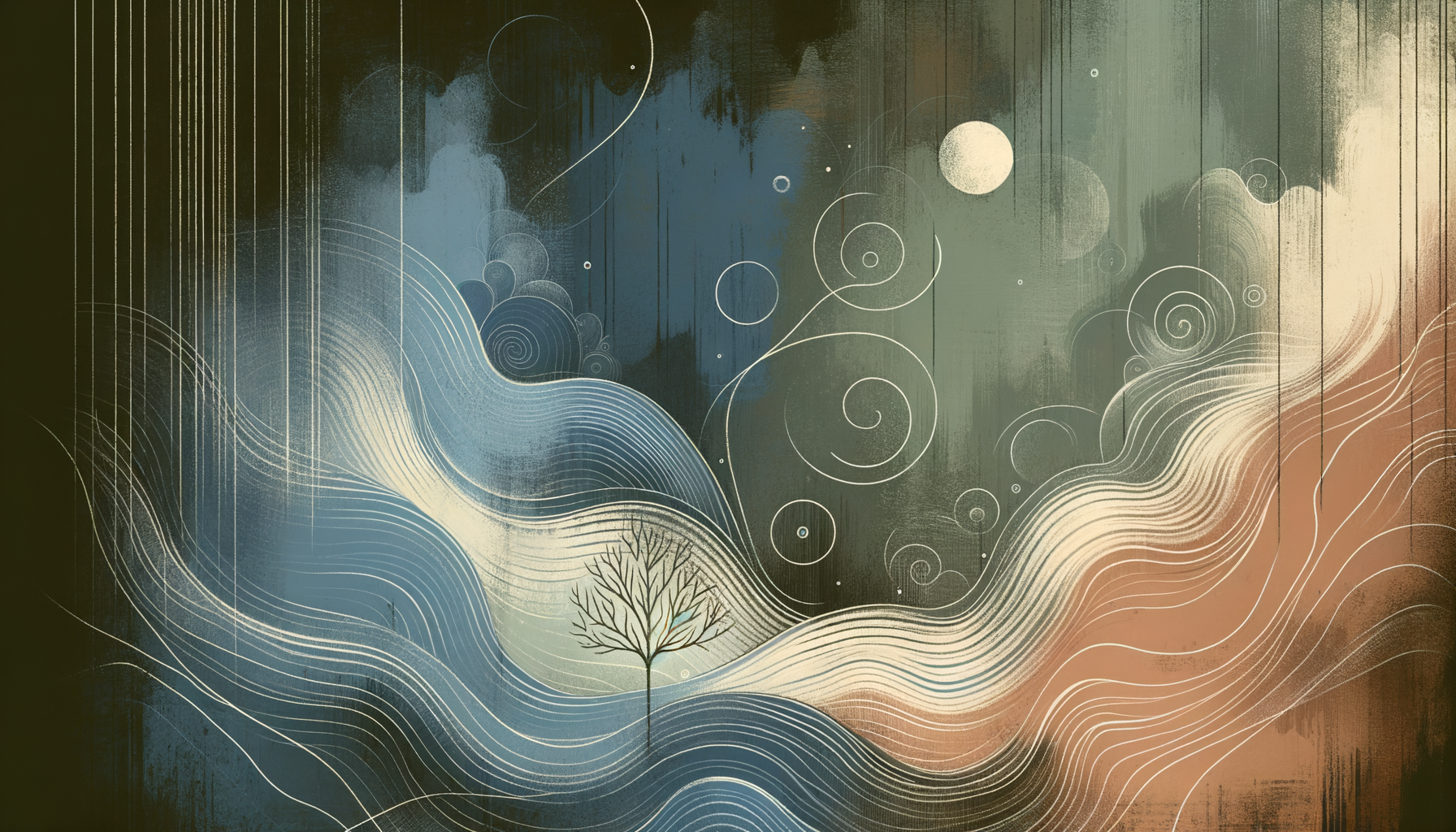The Scar That Tells a Story
When I was four years old, I accidentally toppled a ceramic vase that my mother had spent days crafting and painting. In the chaos that followed, I fell, slicing open my left knee on a shattered shard. For years, I sported a raised, crescent-shaped scar that looked, rather poetically, like a waning moon. This blemish was such a fixture of my childhood that I almost missed the day it faded into a faint silver streak, hidden between high socks and long skirts. And yet, even now, if you ask me about that scar, I could tell you so much more than its origin. That scar narrates a story of messy imperfection—of being a clumsy dreamer in a household that prized precision, of learning that broken things (and little girls) can be fixed.
Scars have a way of doing this, don’t they? Their bold existence demands attention on otherwise smooth surfaces, whether they’re etched into flesh or written into memory. And in love and relationships, scars—literal or metaphorical—carry maturity, lessons, and sometimes even humor. Here’s why these marks, visible or invisible, aren’t just stories—they’re superpowers.
1. The Beauty of Imperfection
A physical scar is a badge of survival. A metaphorical one is a trophy of growth. In Japan, we have a term called kintsugi—the art of repairing broken pottery with gold to highlight the cracks rather than hide them. Scars serve a similar purpose: they emphasize transformation over perfection.
When I was dating in my 20s, I’d contort myself into what I thought was the “perfect” version of a romantic partner. I once pretended to enjoy weekend karaoke sessions just to please a boyfriend—despite the fact that my rendition of ABBA’s "Dancing Queen" could probably make Björn and Benny consider litigation. It wasn’t until much later that I learned relationships aren’t about editing out your quirks, failures, or scars. It’s about someone seeing them and saying, “Actually, that’s my favorite part.”
Embracing imperfections starts with how we see ourselves—and how we let others see us. Whether it’s the small scar on your chin from an ambitious skateboarding phase or the emotional baggage of a heartbreak you thought you’d never recover from, your scars make you distinctive. Imagine trying to connect with someone who claims their life has been smooth sailing. Suspicious? A little boring? Exactly. Scars say, “I’ve been through something and I’m still here. How about you?”
2. Your Scars Are Filters for Authenticity
Here’s the funny thing about scars: They have a way of filtering the people who matter from those who don’t. At the start of a new relationship, we all wear some form of armor, crafting shiny, polished images of ourselves to impress. But sooner or later, the cracks show. And that’s when the real magic happens.
Let me take you back to the early days of my relationship with my current partner. On our first date, I told him a self-deprecating story about splattering red wine all over myself during an important lecture presentation in grad school. Instead of recoiling in secondhand embarrassment, he laughed so hard that I had to check if he was choking (romantic!). I realized, then, that the way people react to your scars—your vulnerabilities—reveals whether they’re worth keeping around.
If someone shies away from the less-than-lovely parts of your life, they’re signaling that they’re not ready for the depth a genuine connection requires. And really, do you want to spend your energy trying to cover up your scars for someone who can’t appreciate the complete picture? A scar, after all, is just part of your narrative—it’s not the sole definition of who you are.
3. Scars as Conversation Catalysts
Now here’s the pragmatic spin: scars make fantastic icebreakers and conversation starters. I’ve been on enough first dates that I’ve learned to keep a few light but intriguing topics in my mental back pocket. “What’s that scar from?” will almost always lead to a memorable story—sometimes funny, sometimes poignant, but always revealing.
Years ago, I dated someone who had a faint burn mark on his forearm from an ill-advised attempt at flambéing bananas as a teenager. As he animatedly recounted how the bananas became mini firebombs, I remember thinking, “this guy knows how to laugh at himself.” And that made him instantly more attractive.
Scars are proof of a life well-lived—and an open invitation to dig deeper. There’s charisma in confidently saying, “This is where I’ve been, and here’s the weird, messy, beautiful story behind it.” Vulnerability, ironically, can be wildly charming.
4. How to Embrace Your Scars in Relationships
If scars tell stories, then the key is learning how to tell yours. Here are some ways to embrace the marks that have shaped you:
-
Lighten Up: Not every scar has to carry Shakespearean tragedy. Some of the best stories about scars are funny—like accidentally walking into a glass door (guilty!) or wading too confidently into an “easy” hike that left you bruised for weeks. Share these moments—they humanize you.
-
Own the Ugly Parts Too: Some scars might not come with neat endings. An emotionally abusive ex, the ache of losing a loved one, or mistakes that haunt you—these can be hard to talk about. But when you’re ready to share, they help a partner understand your resilience—and how to love you better.
-
Offer Compassion: Everyone you meet carries their own scars, whether they’re visible or not. Ask your partner about theirs. It builds trust and makes it a two-way street.
-
Let Go of Perfectionism: People spend far too much time considering how others might judge them. The truth? Confidence in your flaws is infinitely more magnetic than pretending they don’t exist.
5. Scars Are the Plot Twists of Your Story
Every romance has its plot twist. Maybe your deepest scar is the time you thought you’d found “the one,” only to end up healing from betrayal, or perhaps it’s a moment from childhood that still colors your relationship patterns now. Whatever it is, it’s a piece of your personal tapestry. Without it, your story would be flatter, less vibrant.
I'll share one of my favorite quotes by Haruki Murakami: “And once the storm is over, you won’t remember how you made it through, how you managed to survive. But one thing is certain. When you come out of the storm, you won’t be the same person who walked in.” Isn’t that what scars are really about? Emerging changed, a little uneven, but stronger, with a story worth telling.
The Takeaway: Wear Your Scars Proudly
So, here’s the challenge: Wear your scars—with pride, with humor, and without apology. Whether they’re etched on your body, your heart, or both, they remind you that you’re human. That you’ve taken risks. That you’ve survived love and loss, scraped knees, bad decisions, and even worse karaoke nights.
We’re all walking collections of scars, navigating the messiness of life and love. Instead of hiding them, let them shine, like seams of gold running through pottery. After all, a scar doesn’t just mark where something was broken—it shows where it healed. And isn’t that a story worth sharing?




















